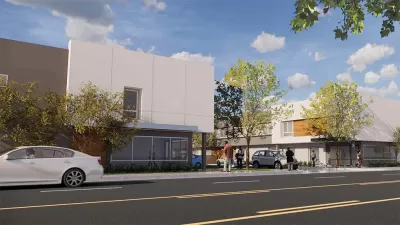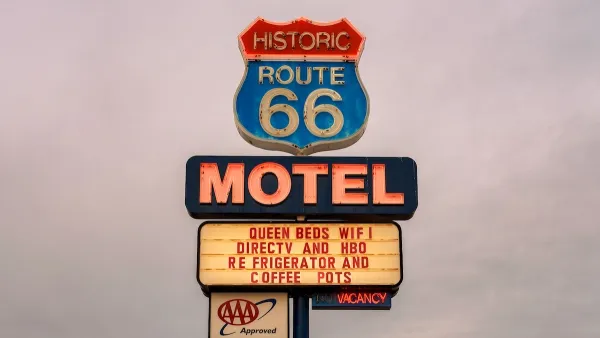At a recent meeting, the city’s mayor urged the city council to support the effort to repurpose a derelict hotel into a permanent supportive housing complex.

Chattanooga Mayor Tim Kelly is urging his city to support a 70-unit permanent supportive housing project slated for a local hotel, reports David Floyd in the Times Free Press. The property would be purchased with $2.79 million in American Rescue Plan Act funds and requires rezoning to make way for converting it into housing.
“Kelly told council members during their regular meeting Tuesday evening that homelessness has jumped nearly 250% in Chattanooga in the last year. Over the last several years, the number of beds available for temporary shelter in the city has decreased, and resources available to deal with mental health and addiction issues haven't kept pace with demand.”
According to Kelly, the facility will not be a shelter, but rather “an apartment complex with services onsite that will help keep people housed.” The city will seek a non-profit partner through a Request for Proposals (RFP) process that will provide case management and manage operations of the property. “The city is still working internally and with local service providers to determine how the facility would operate on a day-to-day basis, [Chief of Staff Joda Thongnopnua] said, but functionally, it would be similar to an apartment building where tenants would have an ongoing lease that could be tied to, for example, a housing choice voucher.”
FULL STORY: Chattanooga mayor addresses concerns about converting hotel into low-income housing

Planetizen Federal Action Tracker
A weekly monitor of how Trump’s orders and actions are impacting planners and planning in America.

Chicago’s Ghost Rails
Just beneath the surface of the modern city lie the remnants of its expansive early 20th-century streetcar system.

San Antonio and Austin are Fusing Into one Massive Megaregion
The region spanning the two central Texas cities is growing fast, posing challenges for local infrastructure and water supplies.

Since Zion's Shuttles Went Electric “The Smog is Gone”
Visitors to Zion National Park can enjoy the canyon via the nation’s first fully electric park shuttle system.

Trump Distributing DOT Safety Funds at 1/10 Rate of Biden
Funds for Safe Streets and other transportation safety and equity programs are being held up by administrative reviews and conflicts with the Trump administration’s priorities.

German Cities Subsidize Taxis for Women Amid Wave of Violence
Free or low-cost taxi rides can help women navigate cities more safely, but critics say the programs don't address the root causes of violence against women.
Urban Design for Planners 1: Software Tools
This six-course series explores essential urban design concepts using open source software and equips planners with the tools they need to participate fully in the urban design process.
Planning for Universal Design
Learn the tools for implementing Universal Design in planning regulations.
planning NEXT
Appalachian Highlands Housing Partners
Mpact (founded as Rail~Volution)
City of Camden Redevelopment Agency
City of Astoria
City of Portland
City of Laramie





























